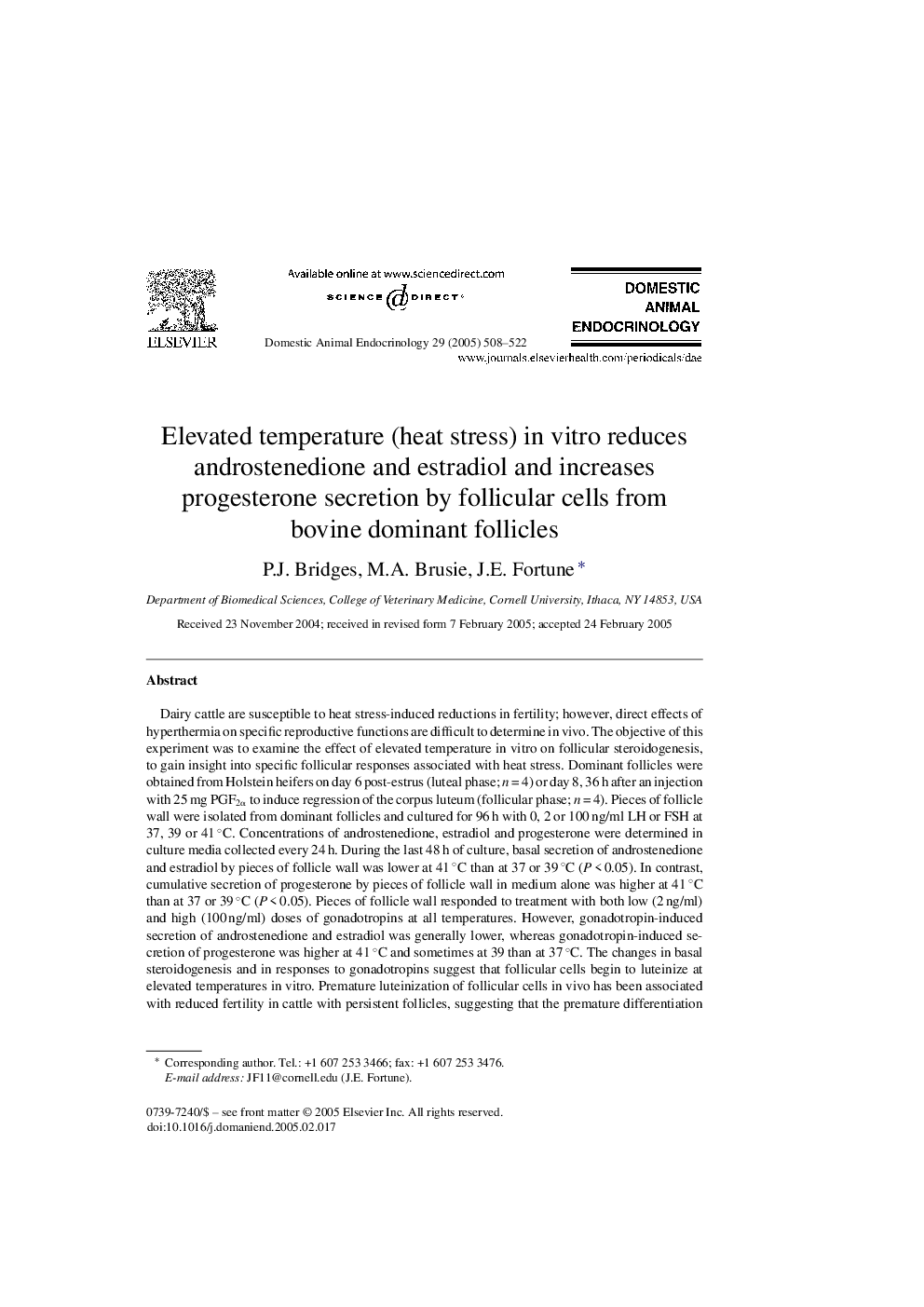| کد مقاله | کد نشریه | سال انتشار | مقاله انگلیسی | نسخه تمام متن |
|---|---|---|---|---|
| 8967273 | 1101406 | 2005 | 15 صفحه PDF | دانلود رایگان |
عنوان انگلیسی مقاله ISI
Elevated temperature (heat stress) in vitro reduces androstenedione and estradiol and increases progesterone secretion by follicular cells from bovine dominant follicles
دانلود مقاله + سفارش ترجمه
دانلود مقاله ISI انگلیسی
رایگان برای ایرانیان
کلمات کلیدی
موضوعات مرتبط
علوم زیستی و بیوفناوری
علوم کشاورزی و بیولوژیک
علوم دامی و جانورشناسی
پیش نمایش صفحه اول مقاله

چکیده انگلیسی
Dairy cattle are susceptible to heat stress-induced reductions in fertility; however, direct effects of hyperthermia on specific reproductive functions are difficult to determine in vivo. The objective of this experiment was to examine the effect of elevated temperature in vitro on follicular steroidogenesis, to gain insight into specific follicular responses associated with heat stress. Dominant follicles were obtained from Holstein heifers on day 6 post-estrus (luteal phase; n = 4) or day 8, 36 h after an injection with 25 mg PGF2α to induce regression of the corpus luteum (follicular phase; n = 4). Pieces of follicle wall were isolated from dominant follicles and cultured for 96 h with 0, 2 or 100 ng/ml LH or FSH at 37, 39 or 41 °C. Concentrations of androstenedione, estradiol and progesterone were determined in culture media collected every 24 h. During the last 48 h of culture, basal secretion of androstenedione and estradiol by pieces of follicle wall was lower at 41 °C than at 37 or 39 °C (P < 0.05). In contrast, cumulative secretion of progesterone by pieces of follicle wall in medium alone was higher at 41 °C than at 37 or 39 °C (P < 0.05). Pieces of follicle wall responded to treatment with both low (2 ng/ml) and high (100 ng/ml) doses of gonadotropins at all temperatures. However, gonadotropin-induced secretion of androstenedione and estradiol was generally lower, whereas gonadotropin-induced secretion of progesterone was higher at 41 °C and sometimes at 39 than at 37 °C. The changes in basal steroidogenesis and in responses to gonadotropins suggest that follicular cells begin to luteinize at elevated temperatures in vitro. Premature luteinization of follicular cells in vivo has been associated with reduced fertility in cattle with persistent follicles, suggesting that the premature differentiation of follicular cells observed in the current study may be responsible, in part, for the reduced fertility of dairy cattle under heat-stressed conditions.
ناشر
Database: Elsevier - ScienceDirect (ساینس دایرکت)
Journal: Domestic Animal Endocrinology - Volume 29, Issue 3, October 2005, Pages 508-522
Journal: Domestic Animal Endocrinology - Volume 29, Issue 3, October 2005, Pages 508-522
نویسندگان
P.J. Bridges, M.A. Brusie, J.E. Fortune,